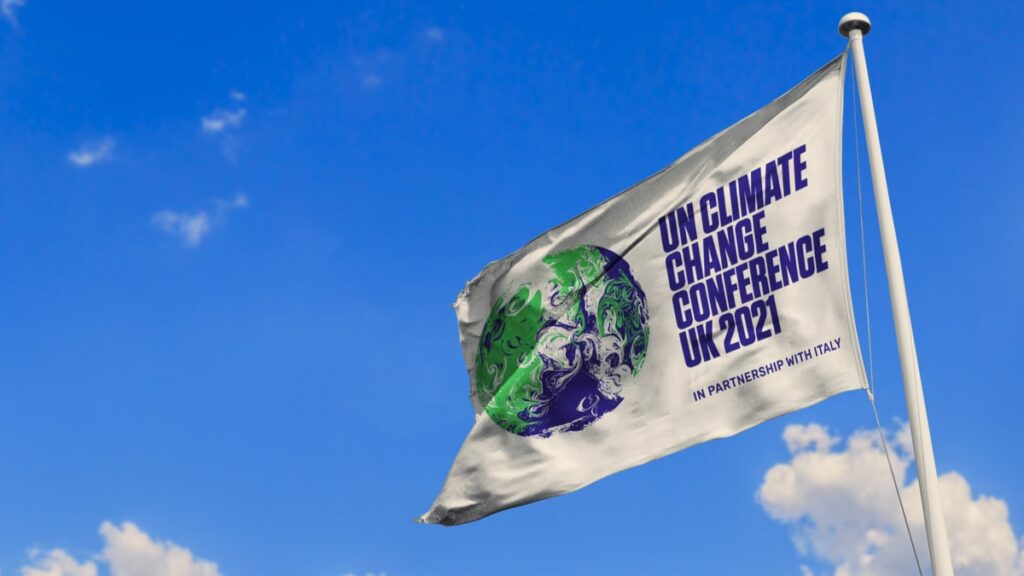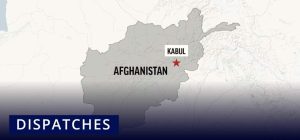

Maha Kamal is an International Public Policy Specialist with a focus on energy and climate. She is the Co-Chair of Women in Energy Pakistan. She was a Chevening Scholar at Queen Mary University of London (MSc. International Public Policy), and was in Boston University before that.
29.10.2021
This week over 25000 people will gather in the Scottish capital of Glasgow to deliberate the future of the Earth as we know it. The 26th UN Climate Change Conference of the Parties begins on October 31st, with climate actors from all around the world – world leaders, non-government representatives, the private sector etc. present for one central goal: aiming to realize the promises that countries made under the Paris Agreement 2015.
COP21 in Paris, when the Paris Agreement was drafted, had focused on limiting global temperature rising by more than 2 degrees Celsius above pre-industrial levels, and striving for a limit of 1.5 degrees Celsius. There is now strong evidence that the world must limit climate change to the 1.5 degree limit. In fact, the science is now “unequivocal” on this point, with a consensus that we are now in a state of climate emergency.
In its landmark report this year, the United Nations’ International Panel on Climate Change (IPCC), the independent body of climate scientists signalled that this is now a “code red for humanity”. This means that for this years’ conference the sense of urgency is far greater and there are calls for systemic change and bold action, putting climate change at the center of international security.
The issues that are central to COP26 are as follows:
- Reach global Net Zero by 2050 i.e. global emissions need to balance between what is produced and removed from the atmosphere
- Adaptation, through building resilience, warning systems etc. to protect vulnerable communities and nature
- Mobilize climate finance and realize the promise wealthy nations made in Copenhagen to commit at least $100 billion per year to support developing countries reduce their emissions and adapt to climate change
However, international rivalries and politics are expected to rear their ugly head in Glasgow, with the U.S.-China relationship central to a breakthrough at COP26. It must be noted that Paris 2015 was considered a success because China, under President Xi, and the U.S., under President Obama, had played a leadership role by agreeing to targets. For COP26, President Xi may not be attending physically, and the nature of the conference negotiations mean that much of the diplomacy is traditionally done informally on-site. Still, China’s climate policy seems to have been pro-climate action, with its recent statement in the U.N. General Assembly that it would no longer finance coal projects internationally, so there is hope for greater ambition for COP26.
Another issue in climate politics is the fact that developing countries have argued for the Kyoto Protocol’s principle of “common but differentiated responsibilities”, emphasizing that under Climate Justice and Equity, greenhouse gas emissions should be measured per capita – which would place the highest responsibility on the United States of America. Under President Biden, the U.S. has only just rejoined its commitments to Paris, having seen climate action slowing down under former President Trump.
As of 2020, the world has not met its ambitious climate finance goals, with only $80 billion committed in 2019, and 2020 targets being impacted by COVID-19. Climate experts suggest that more must be committed to empower inclusive and more just climate action.
Last month, the UN Secretary-General Antonio Guterres stated that “time is running out. Irreversible climate tipping points lie alarmingly close.” The tipping points that Guterres has highlighted point to large, irreversible changes in the state of the climate system. To put this in perspective: just a half degree of warming has meant destabilizing of our global ecosystem with greater extreme weather events, melting glaciers, and rising sea levels.
This was not felt as strongly as it was this year. With the world already reeling under the pressures of a global pandemic with COVID-19, this year extreme weather events all around the world signaled the kind of apocalyptic climatic events the world had not even imagined. With rising temperatures, climate science has warned us about the increasing intensity of storms (such as hurricanes), floods and heatwaves (seen in droughts), and other extreme weather events. The New York Times’ headlines captured this reality visually by stating “Climate Crisis Turns World’s Subways Into Flood Zones”, showing how even the most developed countries’ systems are collapsing under the weight of the climate crisis.
This is even more foreboding for the world’s developing countries, home to about 3/4 of the world’s population. According to the Global Climate Risk Index 2021, “impacts from extreme-weather events hit the poorest countries hardest as these are particularly vulnerable to the damaging effects of a hazard, have a lower coping capacity and may need more time to rebuild and recover.”
This means that Climate Justice is central to COP26. Wide disparities and inequities in the impacts of climate change means that this issue has moral, ethical and political implications – that are not just limited to the environmental or physical realm. Religious leaders have increasingly started to emphasize the moral responsibility of caring for our planet, most notably Pope Francis, who wrote “On Care for Our Common Home.”
It is this sense of a common home – and a common future – that spells hope for negotiations at COP26. A united recognition of the Earth as our imanat – or trust – and a sense of responsibility towards future generations, as enshrined in the concept of “sustainable development.”
Disclaimer: The views expressed in the article are of the author and do not necessarily represent the institute’s policy.

